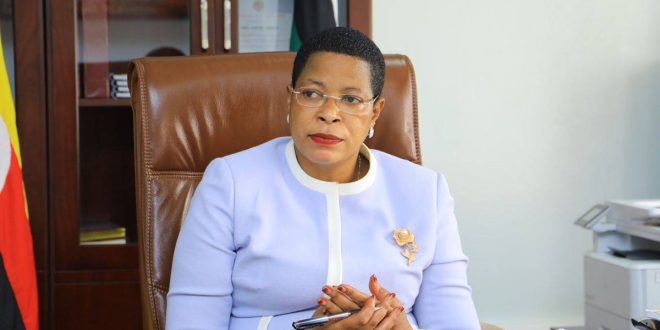“And now that Trump has even won, those sanctions are gone.”
Why Among was sanctioned
In May 2024, the U.S. Department of State announced sanctions against several Ugandan officials, including Speaker Among, citing corruption and human rights abuses.
Among was specifically sanctioned “due to involvement in significant corruption tied to her leadership” of Uganda’s national assembly.
These measures included travel bans and asset freezes, effectively barring the individuals from entering the United States.
The sanctions also extended to Among’s husband, Moses Magogo, who serves as the president of the Federation of Uganda Football Associations (FUFA).
Other officials affected included Lt. Gen. Peter Elwelu, sanctioned over “extrajudicial killings” committed by government troops, and three former ministers implicated in the theft of roofing materials intended for impoverished communities.
New leadership in US
Earlier today, Donald Trump was elected as the 47th President of the United States, defeating Vice President Kamala Harris in a closely contested race.
This victory marks Trump’s return to the White House after losing the 2020 election to President Joe Biden.
Trump’s campaign focused on economic recovery and border security, resonating with a significant portion of the electorate.
Speaker Among’s remarks suggest a belief that the change in U.S. leadership may result in a reassessment of the sanctions imposed during the previous administration.
How likely is lifting of sanctions?
However, it remains uncertain whether the new U.S. administration will alter its stance on the sanctions against Ugandan officials.
The U.S. government typically reviews its foreign policy positions with each administration, but changes are not guaranteed and often depend on a variety of factors, including ongoing assessments of the situations that led to the initial sanctions.
The Ugandan government has previously criticized the sanctions, describing them as politically motivated and an infringement on the country’s sovereignty.
Ugandan authorities have maintained that their internal affairs should be managed without external interference.
Source link



